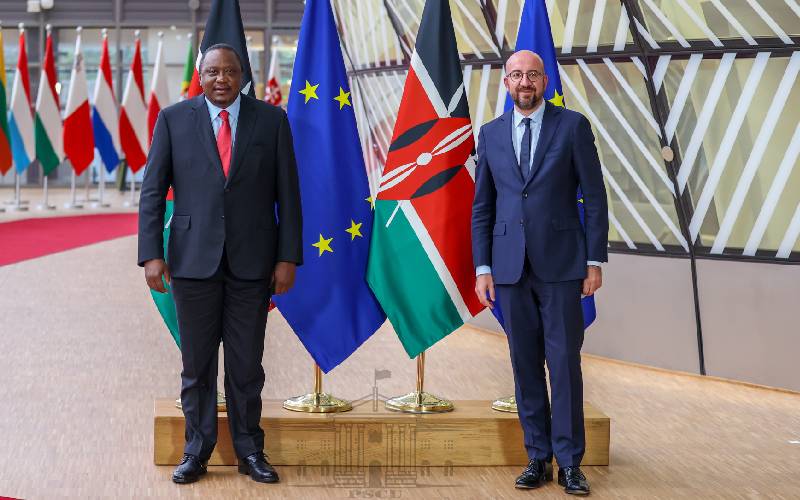×
The Standard e-Paper
Kenya’s Boldest Voice

President Uhuru Kenyatta with the President of the European Council Charles Michel in Brussels.[PSCU]
President Uhuru Kenyatta has stressed the need to build Africa's capacity to manufacture vaccines to arrest emerging pandemics.